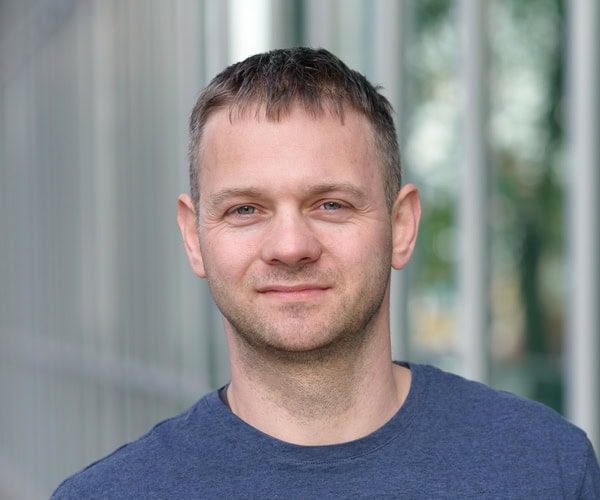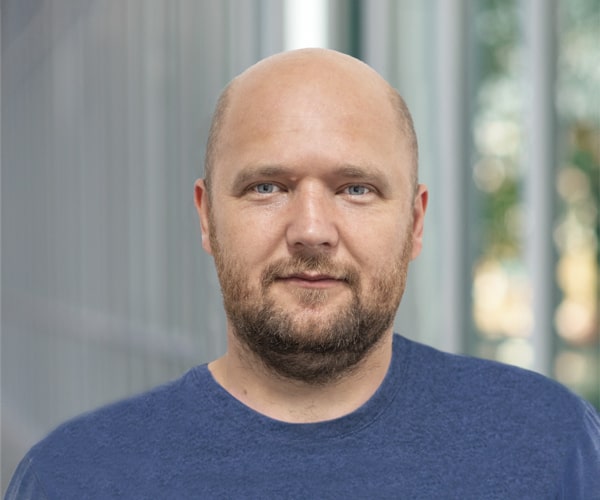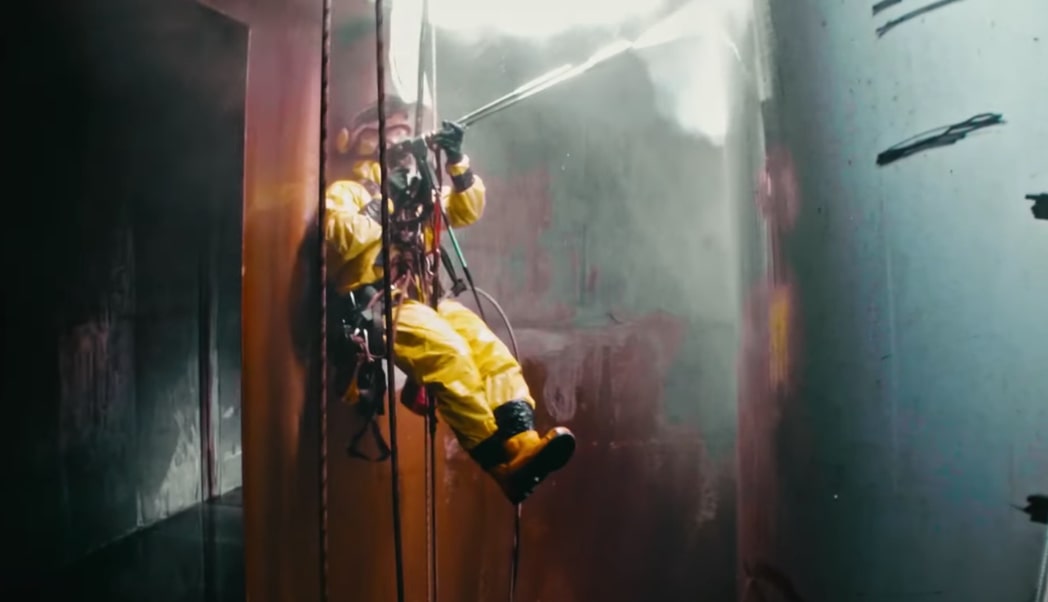Cleaning other industrial systems
High-pressure waterjetting, up to even 2500 bar, is implemented to clean various industrial installations and systems, regardless of their design, complexity or the type of fouling that has accumulated in them.
Ultimately, the accumulated fouling will gradually reduce overall efficiency and output, which might inevitably lead to complete plugging and failure of every type of installation or system.
Periodic and systematic cleaning allows to avoid damage to industrial components – as cleaning is nearly always less expensive than replacing a part of the installation with a new part – it also improves the entire installation’s output and extends its lifetime.
Industrial systems and components we clean most often
In any sector of the industry, each day of downtime means lost revenue, that’s why we respond quickly to emergency situations and we can even send a team on-site the next day.
Piotr StelmachAlpinJet President
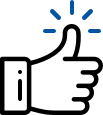
making it impossible
implementation of the service
What is your cleaning technology based on?
Waterjetting, or cleaning via spraying pressurized (high velocity) water onto a fouled surface, allows to remove various types of debris and sediments that have accumulated on that surface, such as resins, glues, old paint coatings, varnishes, tars, oils, dusts, rubber, petroleum substances, corroded concrete, limescale, rust, sludge, algae, biofilm, and most organic and inorganic substances. Waterjetting is one of the most efficient, cost-effective and environmentally friendly industrial cleaning methods.
Regardless of the installation’s type and purpose, we always prepare a detailed job-specific assessment of the type of foulant to be cleaned, the installation’s overall design and parameters and the most suitable tools and equipment to be used prior to commencing any cleaning operation.
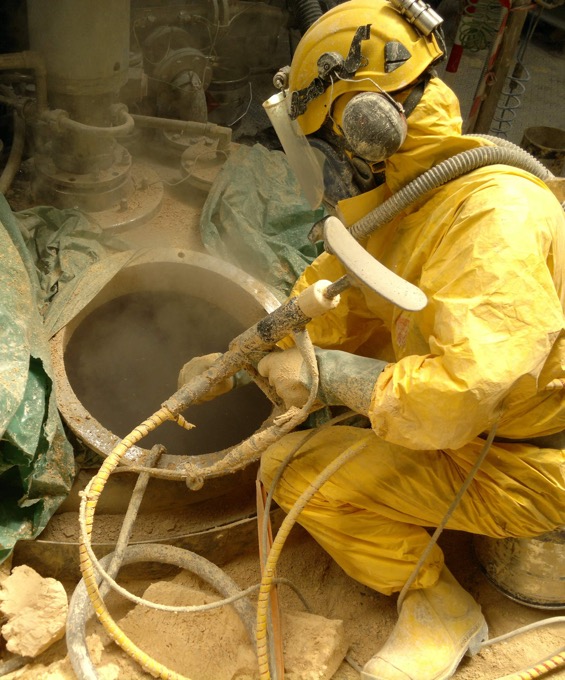
Why choose us?
We’ve been in the business of industrial cleaning for over 14 years. We’ve successfully completed over 1500 projects, thus we can accurately assess and choose the requisite equipment for each new project.
All of our operators are well-trained, experienced professionals. Many are cavers and divers who are used to working in extreme conditions. Each one of our waterjetting operators is qualified to operate waterjets at 2500 bar.
Thanks to work-at-height and rope access certification (IRATA certified), our operators have access to restricted spaces where using traditional means such as scaffolding or a crane basket would be impossible.
We foster a highly rewarding, performance-based work environment. This translates into commitment and self-motivation from our experienced, full-time operators who make sure every task is completed in a highly efficient, timely manner.
Our company structure allows us to minimize the time frame we need to start a cleaning project in an emergency situation. We’ve been providing cleaning services throughout Poland for many years now.
Following safety standards and procedures is our top priority when cleaning industrial installations. Our overall safety measures and proper choice of high-pressure equipment have allowed us to work accident-free since starting our cleaning business.
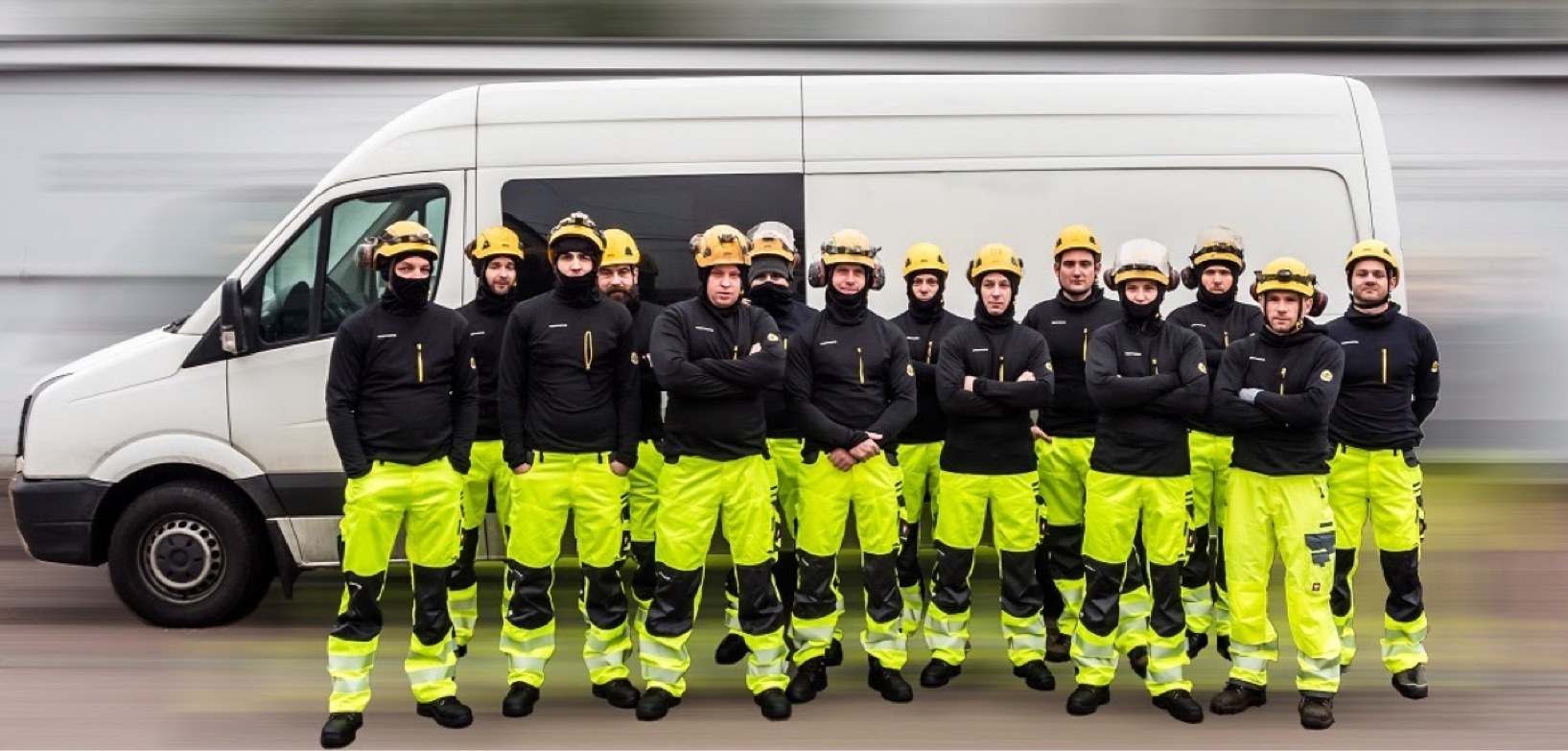
High safety procedures
We work in extremely dangerous and demanding environments. Operating at heights, inside a pipeline, in oxygen-deprived or flammable conditions or requiring the use of chemicals demands proper preparation and planning. We provide our cleaning services to full industry certification and strictly follow all safety procedures (Polish: BHP) during every cleaning project.
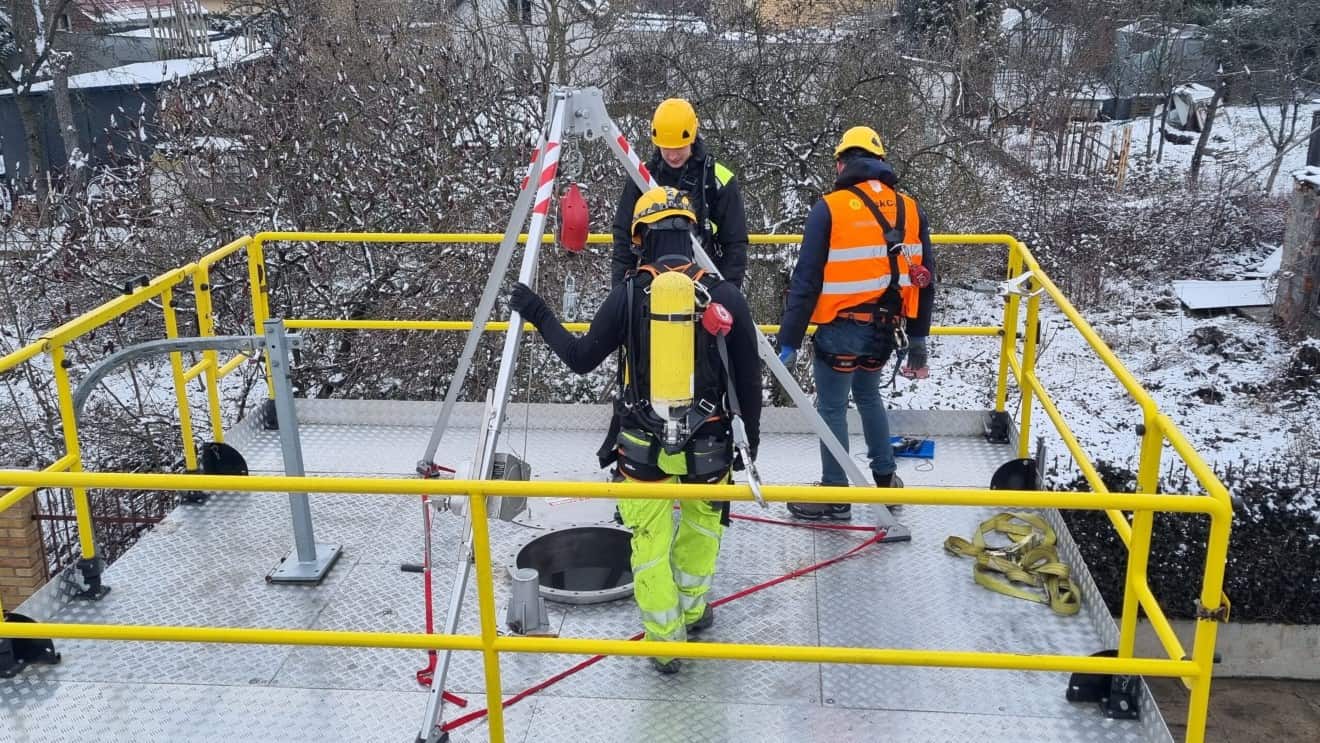
Each new employee joining our team goes through basic training and always starts as a high-pressure operator and/or industrial climber. Our industrial climbers are certified to conduct rope access work. Our most experienced waterjetting operators are qualified to operate tools at 2500 bar.
Our operators are equipped with their own sets of personal protective equipment to work in all types of hazardous environments, such as gas tight coveralls, full-face masks, and motion, low oxygen and chemical sensors. Only certified climbing equipment is used for cleaning tasks that require rope access work.
Besides conducting cleaning tasks in compliance with international policies and processes, we also implement our own, company-specific safety procedures that we have worked out over the years. Our procedures pertain to operator safety, proper choice of equipment and harnesses, and to the entire cleaning process.
Rope access
We can implement our rope access expertise and methods in any given cleaning project, which allows for greater overall flexibility and safety performance. Our work-at-height operators are certified by industry-leading associations such as IRATA and OTDL, and most of them are members of the Polish Alpinist Association.
Cleaning using rope access methods allows to efficiently remove fouling and debris where other cleaning methods and solutions would be more difficult or even impossible to implement. This is both time- and cost-effective for the client.
Although a cleaning task might not demand work-at-height operators, our team includes industrial climbers and cavers – professionals who are used to working in completely dark, confined and damp spaces – thus we can efficiently conduct cleaning operations in the most difficult, hard-to-access places.
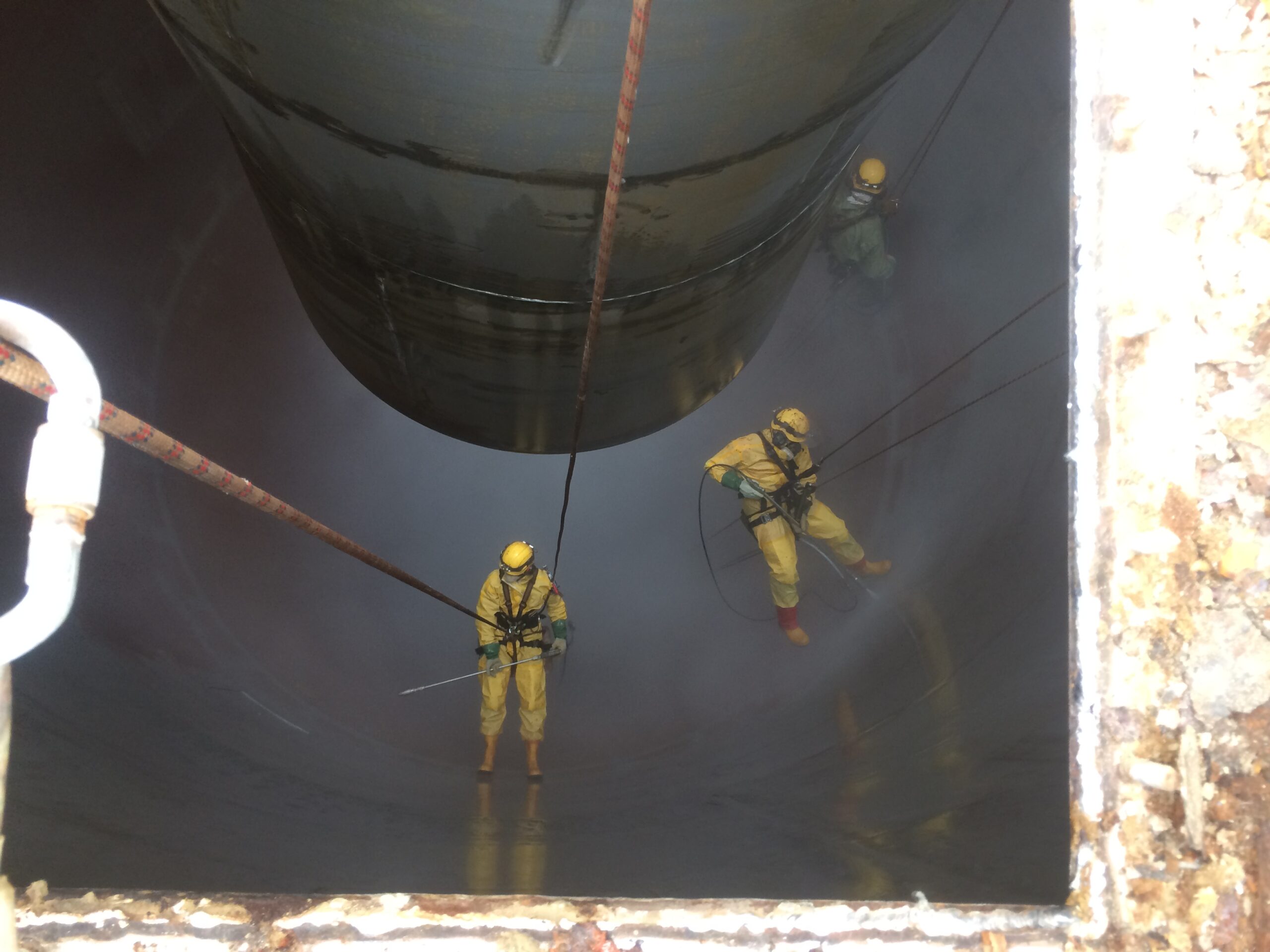
Experience
We have over 14 years’ experience in cleaning all types of industrial installations of various size, shape and use. Successfully completing cleaning projects across a variety of industrial sectors – from food & beverage to petrochemical – means we possess the hands-on experience and professional know-how necessary to handle any deep clean task to remove various types of fouling, sediment deposits and heavy debris.
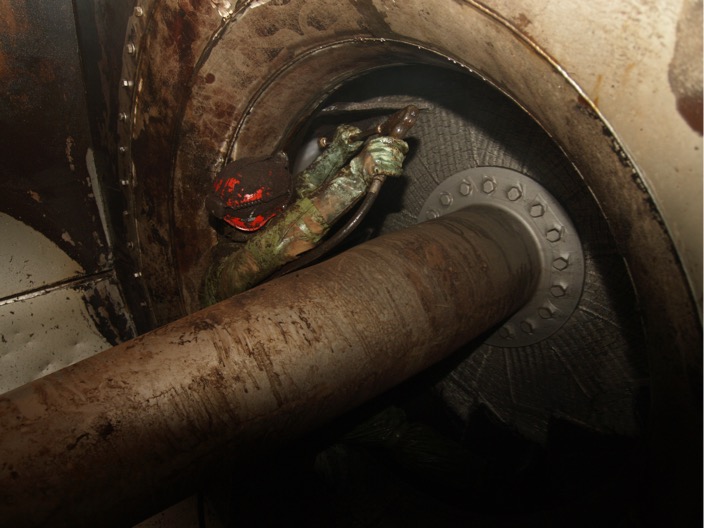
The blades and rotor of an industrial fan were cleaned in order to eliminate vibrations that were being caused by the built-up deposits.
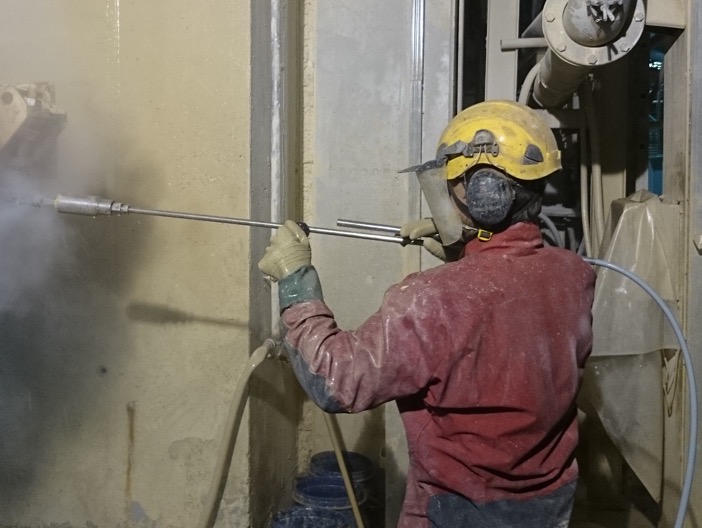
A machine’s dismantled components were cleaned. The fouling that had accumulated over the years could be removed only during a major renovation of the entire installation.
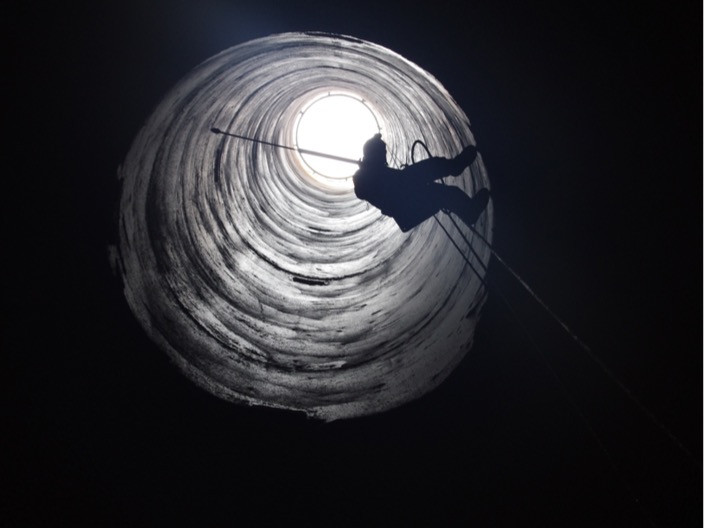
Removal of dust residue from inside a 60-meter high chimney. The job was conducted via rope access and using a 500-bar pump.
Industries we’ve worked for
production
production
processing
Equipment
We use mainly our own equipment during cleaning tasks. Our entire selection of tools and machines – from high-pressure water pumps through power units to pipeline cleaning nozzles – is purchased brand-new, directly from the manufacturers. This guarantees the highest quality of the tools we use and eliminates any unforeseen equipment failures. Our many years of experience allow us flexibility when selecting the optimal applications from each manufacturer’s array of ready-to-use equipment. If necessary, we can develop custom solutions and implement our own applications that are unavailable to competitive cleaning service providers. This allows us to adapt all our tools and equipment to meet the unique demands of each cleaning project.

pompy wysokociśnieniowe
dysz i głowic wysokociśnieniowych
głowic do czyszczenia dużych rurociągów
Highest standards guaranteed
There is no room for error in any industry – as time and reliability count the most – that is why we are dedicated to maintaining strong safety performance. We meet all safety standards as detailed in ISO 9001, 14001 and 45001 certification. For many years we belonged to the prestigious American WaterJet Technology Association (WJTA), and most of our rope access operators are Polish Alpinist Association members.
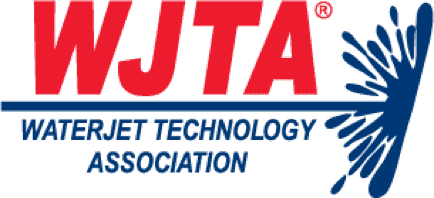
For many years, we belonged to the prestigious international WaterJet Technology Association (WJTA) which brings together key players in the waterjetting business.

We have ISO 9001, 14001 and 45001 certificates confirming compliance with safety standards for high-pressure waterblasting and rope access services.

Each project requiring the use of rope access methods is organized and supervised by a qualified Polish Alpinist Association instructor.
FAQs
Below are our answers to our clients’ most frequent questions regarding industrial cleaning.
Can you clean any industrial installation?
We can use high-pressure technology to clean any installation of any shape, size and level of complexity. We address each new cleaning project on an individual, job- and site-specific basis. We assess the installation’s set up, material and location and review its technical drawings. If possible, we perform a test run to find the most efficient fouling removal technique that will also be both time- and cost-effective. If the installation’s structure or set up poses any restrictions, we will recommend another cleaning method or custom modifications.
What work-at-height and rope access PPE do you use?
We use certified rope access kits, equipment and gear from Petzl and Singing Rock for cleaning tasks that require rope access work. Each equipment item has its own documentation (evidence sheets) and undergoes yearly PPE inspections by authorized, qualified PPE inspectors in accordance with applicable standards. We do not use equipment that is no longer fit for use or does not meet the necessary PPE requirements. Equipment that should slowly be withdrawn is used for the dirtiest tasks, after which it is discarded. We replace and purchase new PPE on a regular basis.
Can high-pressure waterjetting damage the surface that is being cleaned?
That depends on how hard the built-up fouling, or scale, is and how strong the surface is on which that scale has accumulated. The least favorable situation is when hard scale has built up on a delicate surface, and in such cases, although extremely rare, it is practically impossible to remove all of the scale build-up.
Most industrial installations are made from carbon or acid-resistant steel, and such surfaces are resistant to the high-pressure water stream. Waterjetting is thus a non-abrasive and safe industrial cleaning method.
What types of fouling do you remove during the waterjetting operation?
We use high-pressure waterjetting equipment to clean various industrial fouling that has built up, including resins, glues, old paint coatings, paints, varnishes, tars, polymers, oils, waxes and greases, dusts and grit, rubber, petroleum substances, corroded concrete, limescale, rust, sludge and silts, algae, biofilm, most organic and inorganic substances and all other types of industrial-specific deposits.
Would you like to see our answers to other questions? Please go to our FAQs
Please contact our office if you have any questions or a cleaning project for us.
Our expert staff will contact you promptly to answer any questions.
